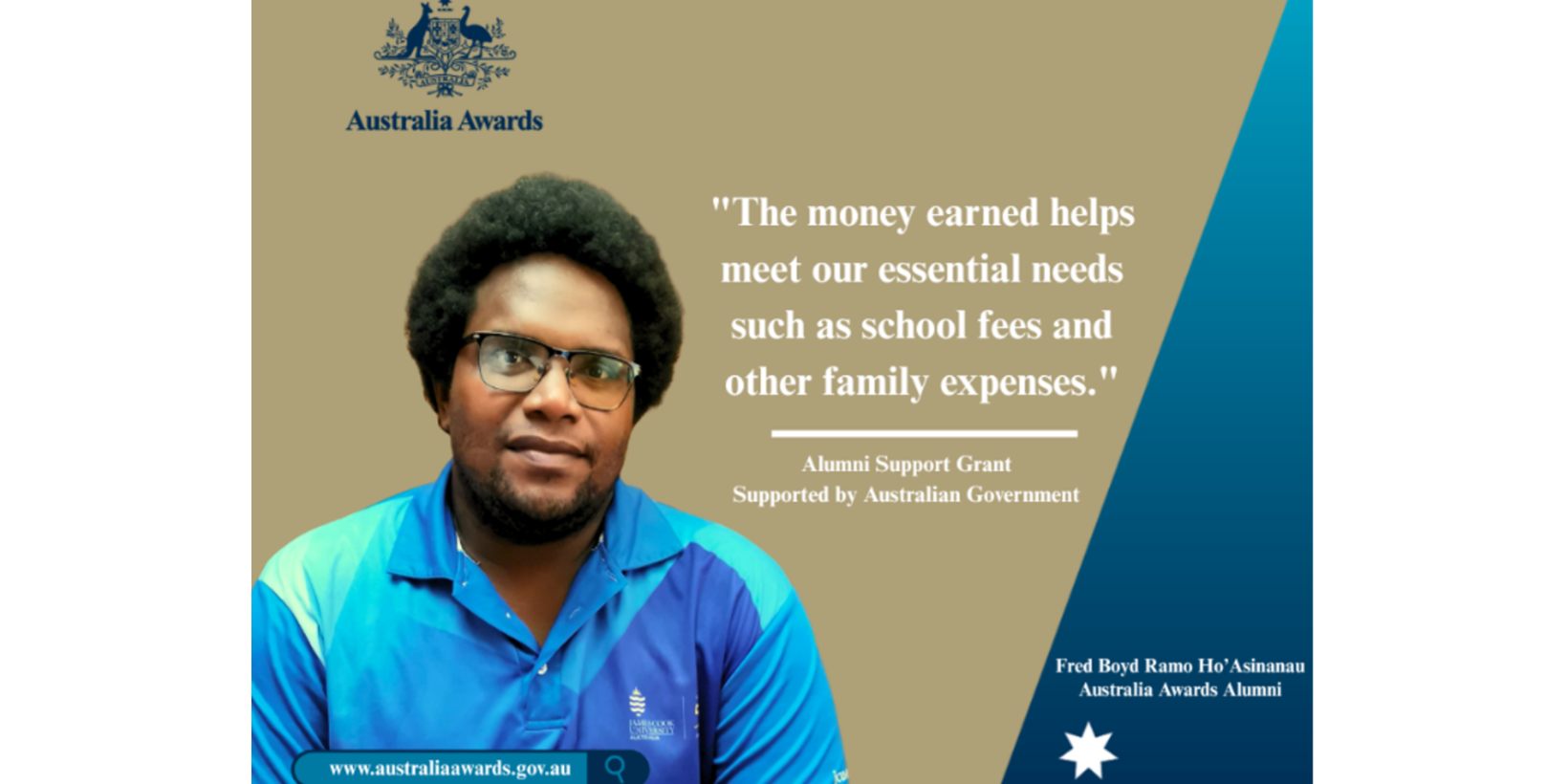In Abukwau, a small rural community nestled in Auki, Malaita Province, piglets were once believed to be cursed. Families watched helplessly as animals died young, with little hope of survival.
Today, the narrative has shifted. Healthy pigs now thrive in sturdy pens, as women cultivate gardens fertilised with pig manure and youths see a future in farming.
This transformation is the result of the Empowering Livelihood through Sustainable Pig Farming project, led by Australia Awards alumnus Fred Boyd Ramo Ho’Asinanau, a marine science graduate from James Cook University.
Funded by the Australian Government through the Australia Awards Solomon Islands Alumni Support Grant, Fred returned home determined to apply not only his scientific knowledge, but to improve his community’s livelihood through better livestock production and vegetables crop farming.
The initiative has also fostered new partnerships, including collaboration with a lead pig farmer in Auki, opening new market pathways and demonstrating how village pig production can meet commercial quality and health standards.
Local participant Minnie Jayvin said the training was an eye-opener.
“We thought our piglets were cursed when they died, but now we understand how to care for them,” Ms Jayvin said, smiling as she fed a pen of lively piglets.
The project delivered hands-on training in both modern and traditional livestock husbandry practices, including disease prevention, improved nutrition, and sustainable waste management.
Farmers also learned how to safely use pig manure for vegetable gardening—linking livestock care with improved food security.
Importantly, the training reached beyond experienced farmers.
Women, youth, and small-scale household pig farmers formed the majority of participants, sparking new piggery ventures, creating local jobs and improved community livelihoods.
“This training was a lifeline for youths like me who didn’t finish school,” said Stanley Iro, a Youth Representative.
“It offered a real opportunity to build a better future.”
The ripple effects are already visible. Five participants from neighbouring villages have joined the program, carrying valuable knowledge back to their communities.
Families now raise healthier pigs, earn increased incomes, have enhanced household food security and can meet household necessities like school fees.
Community elder and pastor Joshua Kalani reflected on the broader impact of the project.
“Our heartfelt thanks to Fred, an Australia Awards alumnus, for bringing his skills and knowledge back home,” Mr Kalani said.
“It has truly improved our capacity. This shows Australia’s support didn’t end with scholarships—it continued through real action in our communities.”
For Fred, the project is a story of giving back.
Though his academic journey took him overseas to study marine science, his heart was set on improving livelihoods in his community.
By channelling alumni grant support into practical training, he has successfully unlocked opportunities where once there was only struggle.
“Pigs are highly valuable in our community and serve as one of the main sources of income for many families.”
“The income earned helps meet our essential needs such as school fees and other family expenses.”
In Abukwau, pigs are no longer seen as cursed—but as a valued source of sustainable livelihoods.
– AHC








